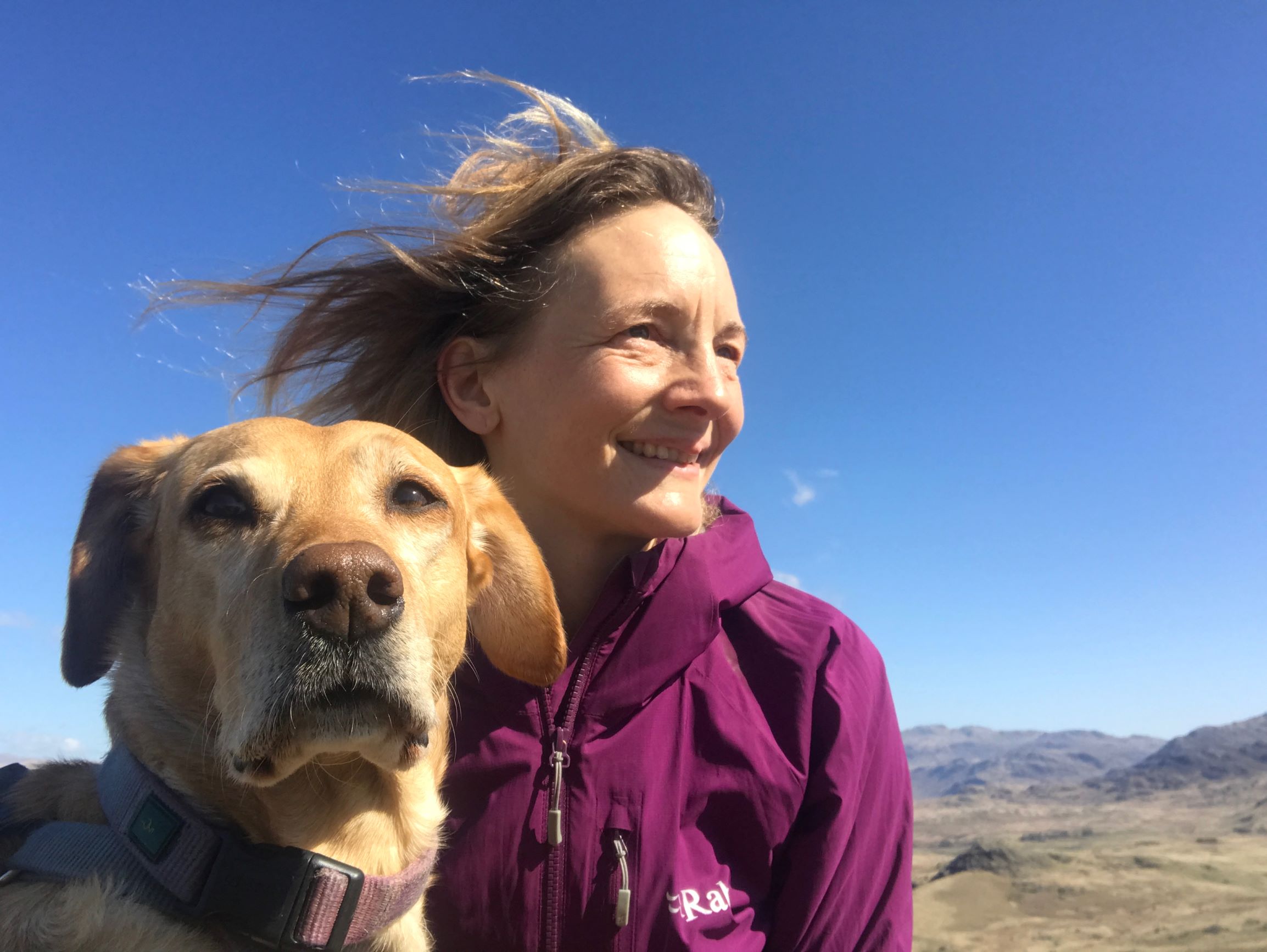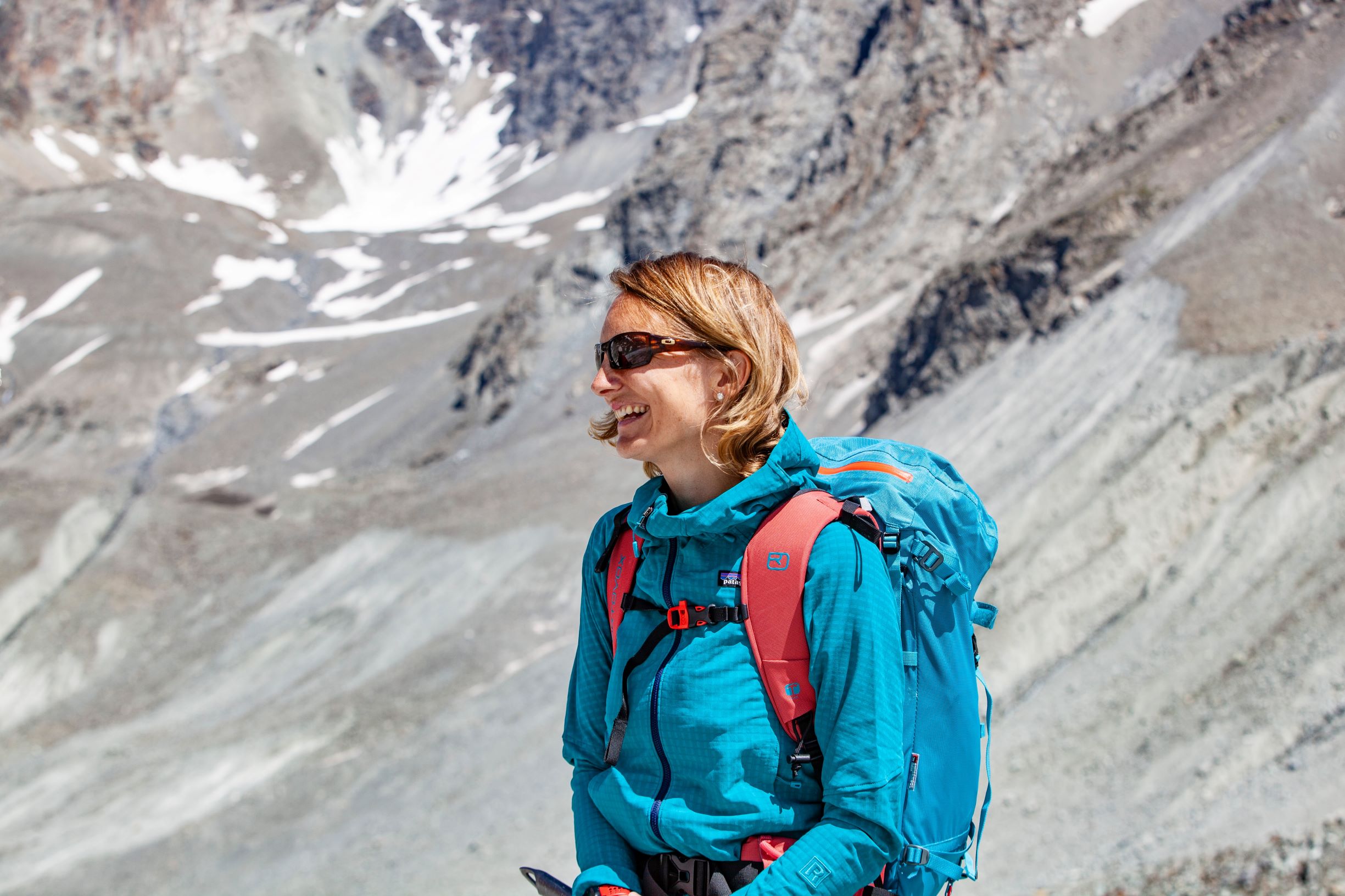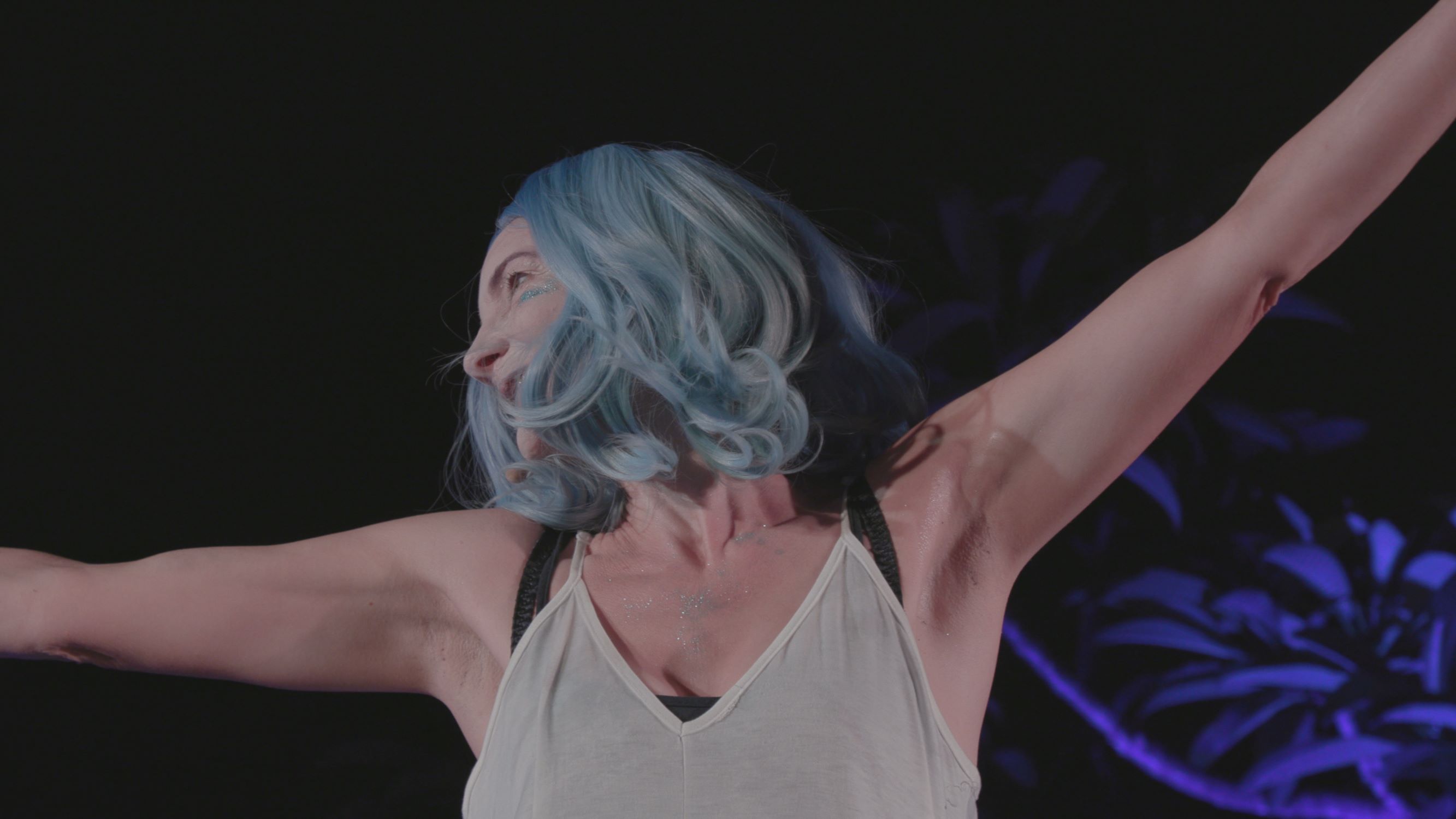Professor Wadham, Director of the renowned Cabot Institute for the Environment, at the University of Bristol, has captured this remarkable journey spanning 25 years in a new memoir Ice Rivers, which will be available in bookshops from 6 May and is the topic of a free event on 11 May as part of the university’s inaugural Festival of International Research and Partnerships.
The book, Professor Wadham’s first foray into writing for general readership, has already featured in VOGUE magazine, also unchartered territory for a trailblazer who feels most at home wrapped up in multiple layers atop a mountain, a far cry from the glitz and glamour of high fashion. But these are unprecedented times, when the need has never been greater to raise wide awareness of the fact these remarkable edifices are melting at an alarming rate and urgent action must be taken to avert an irreversible environmental catastrophe.
“I wasn’t expecting all the attention and normally I’m quite a private person, but if the book improves people’s understanding of glacier and thir huge importance to us and inspires them to be part of positive change, that’s got to be a good thing,” she said.
“We’re basically running out of time to stem the tide against global warming. Although it’s impossible to regrow glaciers in the current climate, by cutting back on carbon emissions we can preserve more in a big way. For instance, that could be the difference between losing a third or two thirds of the entire population of Himalayan glaciers, and the clock is already ticking.”
The book was completed last year, just before normal life froze and the UK entered its first COVID-19 public lockdown. It took only seven weeks to finish the first draft, which Jemma decided to write while recovering from emergency brain surgery.
“I didn’t feel up to academic writing, but I wanted to write something for everyone. It’s mostly about glaciers but my personal story is closely entwined. The process felt very intuitive and the words flowed easily,” she said.
As a child, Jemma was a talented flautist and originally planned on going to music college. But in the belief science could provide a more stable career path, she completed a PhD in glacier geochemistry at the University of Bristol after gaining a degree in geography.
“During the summer holidays I helped out on field expeditions and loved it straight away. Glaciers, these vast moving rivers of ice, were absolutely fascinating and I wanted to know what was going on below, hundreds to thousands of metres deep down,” she said.
“There was no grand plan to be an academic glaciologist – I don’t even like the cold. I just followed what I was passionate about and made my next decision based on that.”
Professor Wadham went on to lead pioneering research into life forms inside glaciers, which span one tenth of the Earth’s land surface. Once considered sterile wastelands, her endeavours involving complex water sampling revealed glaciers were, like soil and oceans, actually teeming with life - billions of micro-organisms.
This life and the abundant meltwaters produced by glaciers helps release nutrients to sustain fragile marine food webs which are under increasing threat as the glaciers ebb away. Some of these microbes also produce the greenhouse gas methane, which could be stored in the frozen guts of ice sheets for millions of years, so the depletion of their ice habitats could pose another danger – unlocking vast quantities of this potent gas into the atmosphere.
“The tragedy is real and escalating. Glaciers I explored at the start of my career are literally disappearing and could be all but gone by the end of the century, unless we drastically change and reduce carbon emissions.”
Besides scientific expertise, the many expeditions to glaciers around the world, including to Greenland, Antarctica, Svalbard, Chilean Patagonia, the Peruvian Andes and the Himalayas, demand a great deal of physical and mental resilience.
“It’s extremely cold, isolated, and light all the time in the Polar regions which can make sleeping hard. You’re off-grid, apart from a satellite phone to check in, so that means going weeks or months without any contact back home and surviving on dehydrated food or, if you’re lucky, tins. It’s gruelling but there’s a tremendous sense of solidarity with the team - we share meals and play cards at the end of the day before retreating to our sleeping bags,” she said.
“There are some creature comforts. I take plenty of fruit and nut chocolate and a good book – a novel, not science.”
Not for the faint-hearted, brushes with polar bears also go with the territory.
“The closest and scariest encounter was my first expedition in Svalbard. The bear started banging on the hut door and trying to break in. Although you have a gun, using it is always a last resort because they’re a protected species so you have to prove it was going to kill you. Fortunately it wasn’t in the summer, when they’re most hungry, so after a while it went away,” she said.
But perhaps her most fearful moments to date were events which unfolded after blacking out en route home from an expedition in Chile in 2018.
“The pain in my head was excruciating. I’d been having various issues for months, such as numbness in my legs and loss of vision when standing up, but I put it down to being so busy and rundown,” she said.
“My chiropractor advised going for a head scan, which I did without being too worried. The next day I was called and told to go to A&E immediately. I remember asking if it’s a brain tumour, writing my will, and packing two rucksacks as if I was going on an expedition with no certain return. I only told a few close friends and colleagues to avoid the fuss and additional trauma of dealing with other people’s reactions.”
Surgeons operated the next day to remove a growth the size of a tangerine from the back of her brain.
“It was pretty frightening but all happened very fast. There was fluid build-up creating pressure on my brain, so I was told it needed to come out now,” she said.
“They day after the op I wanted to go home, but the surgeon told me very clearly: ‘No - you’ve just had major brain surgery!’”
Tests confirmed the large cyst to be non-cancerous and after a week in intensive care she was discharged. Professor Wadham opted to take a year sabbatical, but within eight months she returned to her second home and first love, leading a field trip to glaciers in Peru.
“I was nervous and knew things would be different, but I was determined to prove I could still do it. The hardest part was acknowledging my limits – normally I would push on as long as possible working late into the night, but this time I had to give myself a buffer to avoid getting too tired,” she said.
“I try not to focus on the differences before and after brain surgery and concentrate on how I am now. The experience has given me a much greater appreciation of the value of time and the importance of living in the moment by making the best choices to be as happy as you can,” she said.
At work that means inspiring and supporting young researchers and, in her spare time, skiing and spending time with her horses and golden Labrador Poppy, who was a constant comforting presence when writing Ice Rivers.
She remains modest when reflecting on her immense academic achievements, which include gaining a Professorship aged 39, winning several prestigious national accolades such as a Philip Leverhulme Prize and Royal Society Wolfson Award, and being appointed the first female director of the Cabot Institute for the Environment.
“We’re all humans first and foremost, who become scientists or artists based on our choices. I’ve always just tried to do the best I can and feel incredibly fortunate, living this second life,” she said.
“It has renewed my passion for the arts and opened exciting doors. Without my illness, I wouldn’t have had time to play a glacier in a theatrical production run by the Hay Festival or be talking about a book, which may never have been written. In many ways it has proved the perfect opportunity to take stock and engage a much bigger audience with pressing crises which imperil our planet and humanity. This is vital work and we haven’t a moment to lose.”


